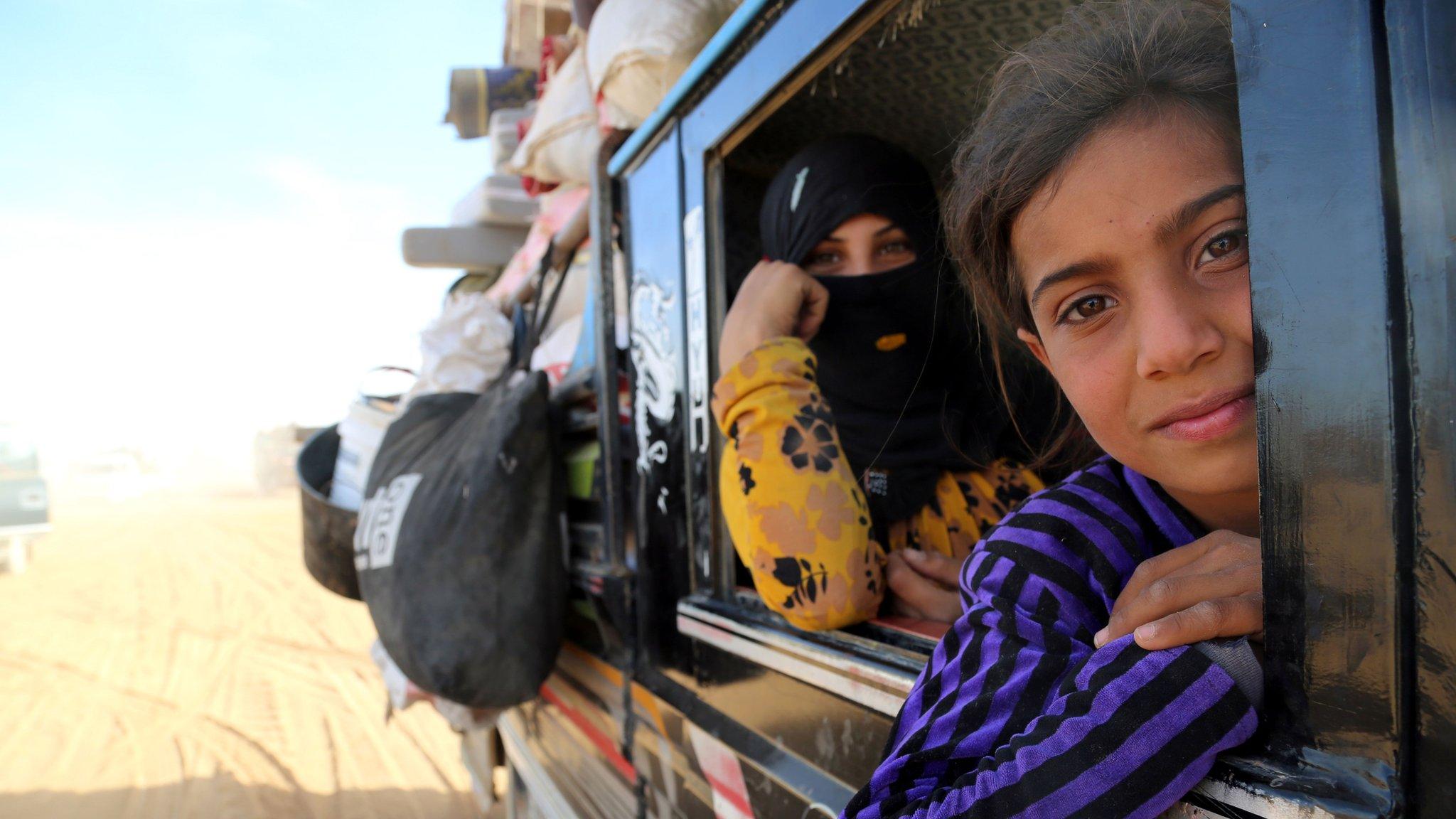Channel migrants: Home secretary declares major incident
- Published
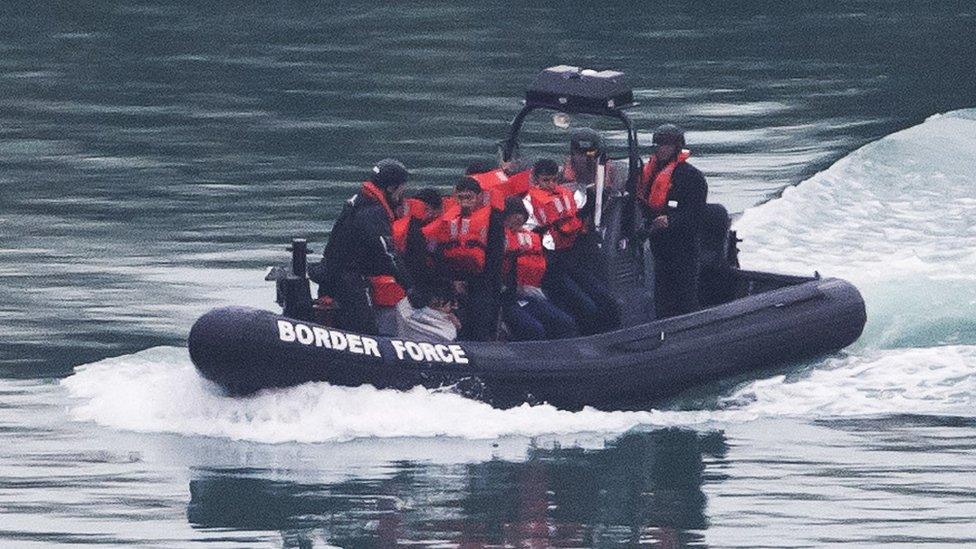
Border Force officials detained 12 adult migrants on Friday
The rising number of migrants attempting to cross the Channel in small boats has been declared a "major incident" by the UK home secretary.
Sajid Javid has asked for an urgent call with his French counterpart about the situation.
The Home Office said there was "concern that it is only a matter of time before people lose their lives".
It comes after at least 221 migrants have attempted to cross the Channel to England since the start of November.
Sorry, your browser cannot display this map
Most recently, 12 people were detained off the coast of Dover in the early hours of Friday morning.
Officials on both sides of the Channel have warned of the dangers of crossing what is the world's busiest shipping lane in a small boat. Police have likened the journey to trying to "cross the M25 at rush-hour on foot".
In a statement, the Home Office said Mr Javid had "taken control of the response" to the situation.
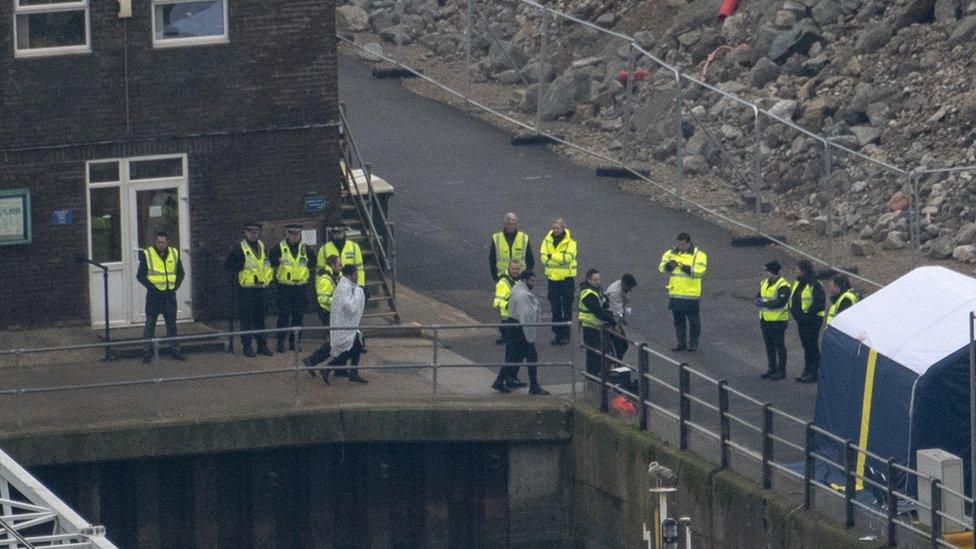
The 12 detained on Friday were brought to shore and given a medical assessment in Dover before being transferred to immigration officials
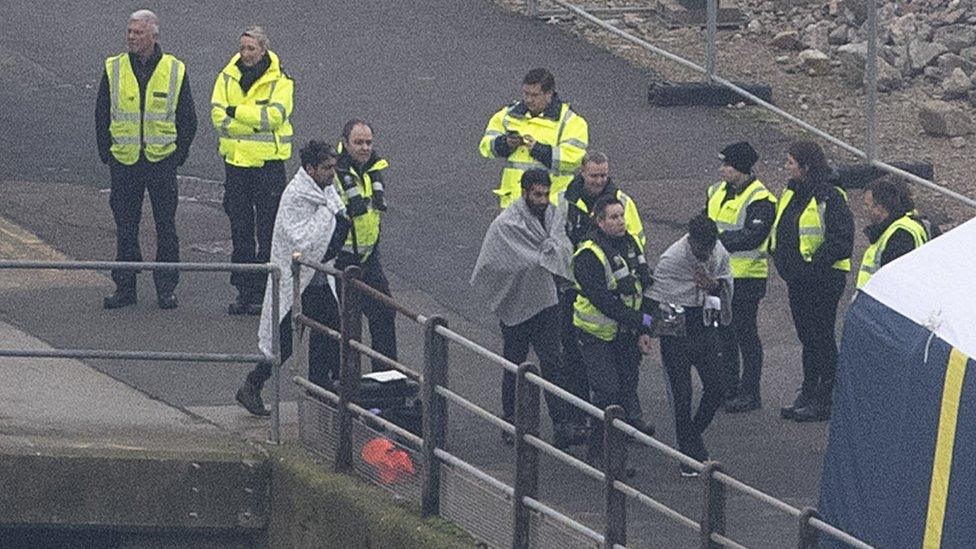
The latest detention comes after 40 migrants were rescued from the Channel on Christmas Day
Mr Javid has been appointed "gold commander", meaning he has ultimate responsibility, external for the handling and outcome of the incident and sets out a strategy of how to deal with it.
He will now receive daily updates from the Home Office, and has spoken to Border Force officials, Immigration Enforcement and the National Crime Agency in a conference call.
The Home Office added: "The home secretary has also asked for an urgent call with his French counterpart over the weekend to reaffirm the continuing need for the UK and France to work closely together to tackle the problem.
"He has also commissioned detailed options from Border Force about the provision of additional vessels in the Channel, including another Border Force cutter, and whether this is likely to encourage more people to try and make the crossing rather than act as a deterrence."
Bridget Chapman, from the charity Kent Refugee Action Network, said the situation was in part a result of UK measures to "beef up the security around Calais".
"We've put a big fence up to prevent people from accessing trains and lorries and people are resorting to other methods to get here," she told the BBC.
"It's winter, but the weather has been quite good. And I expect people traffickers are exploiting people, saying, 'You know, things are going to tighten up after Brexit, you need to go now.'"
'Organised criminality'
Many of the migrants are Iranian or Syrian.
More than five million Syrians have left their country since its civil war started in 2011, and in the past two years, Iranian citizens have made more UK asylum applications than any other nationality according to Home Office figures.
A BBC South East investigation last month found that people smugglers were telling migrants they must enter before "the borders shut properly" after Brexit.
British and French authorities have both said the rise in crossings is the result of "organised criminality" and "mafia networks".
Earlier, Immigration Minister Caroline Nokes said the number of incidents over recent days was "deeply concerning" and crossing the water in a dinghy was "extremely dangerous".
She is due to visit Border Force officers in Dover on Saturday to discuss the situation.
A migrant rescue off the coast of Dover in November 2018
The MP for Folkestone in Kent, Damian Collins, questioned why the UK was not doing more to stop the boats leaving France in the first place.
He said: "We need to make it really clear to the migrants and the gangs that if you try and do this you will be detected early, either as you're preparing to leave or as soon as you're in the water, and you'll be returned to France."
Charlie Elphicke - MP for Dover and Deal - suggested more patrol vessels may be needed.
"One is simply not enough and I think we need to ask questions, what are the two patrol craft doing in the Mediterranean - would they be better placed in the English Channel?"
Responding to the suggestion that bringing rescued migrants to the UK could encourage people to attempt the journey, Steve Valdez-Symonds, from Amnesty International, said that was "nonsense".
"If people are in danger of their lives then they need to be saved," he told the BBC. "This is exactly the sort of nonsense we've heard in response to the desperate circumstances where thousands of people have drowned in the Mediterranean. When search and rescue has been withdrawn, more people die."
The people found off the Kent coast since November:
28 December - Twelve migrants in two separate boats detained off the coast of Dover
27 December - Some 23 migrants, including three children, were detained in Kent after crossing the channel in small three boats
26 December - Three migrants brought ashore by Border Force
25 December - Forty migrants, including two children, crossed the Channel in five boats
15 December - Four children are among a group of 11 people rescued off Dover. Eight said they were Iraqi and the other three claimed to be Iranian
12 December - Six men found in a dinghy off the coast of Dover
11 December - Six people, thought to be from Iran were rescued from a small boat off the Kent coast. A second boat with eight men, all saying they were Iranian were picked up later the same day off Dover
4 December - Two men were brought to shore at Dover
27 November - An 18-month-old baby was among nine people rescued from a dinghy off Dover
23 November - Eight men located in a dinghy off the coast of Dover
22 November - Thirteen men and one woman were intercepted in two dinghies off the coast of Dover
18 November - Nine suspected migrants were found clambering up rocks in Folkestone after apparently crossing the English Channel in a small boat
16 November - Seven suspected migrants were found off Samphire Hoe, near Dover
14 November - Nine suspected migrants - seven men, one woman and a toddler - were found off the Kent coast. Another 10 were found near Dover Docks and five men were found several miles of Ramsgate
13 November - Fourteen men and three children entered Port of Dover on a French fishing boat believed to be stolen
9 November -Seven men were found in the English Channel off Dover
3 November - Eight suspected migrants were stopped off the Kent coast and seven others were stopped at Dover Western Docks
A note on terminology: The BBC uses the term migrant to refer to all people on the move who have yet to complete the legal process of claiming asylum. This group includes people fleeing war-torn countries, who are likely to be granted refugee status, as well as people who are seeking jobs and better lives, who governments are likely to rule are economic migrants.
- Published28 December 2018
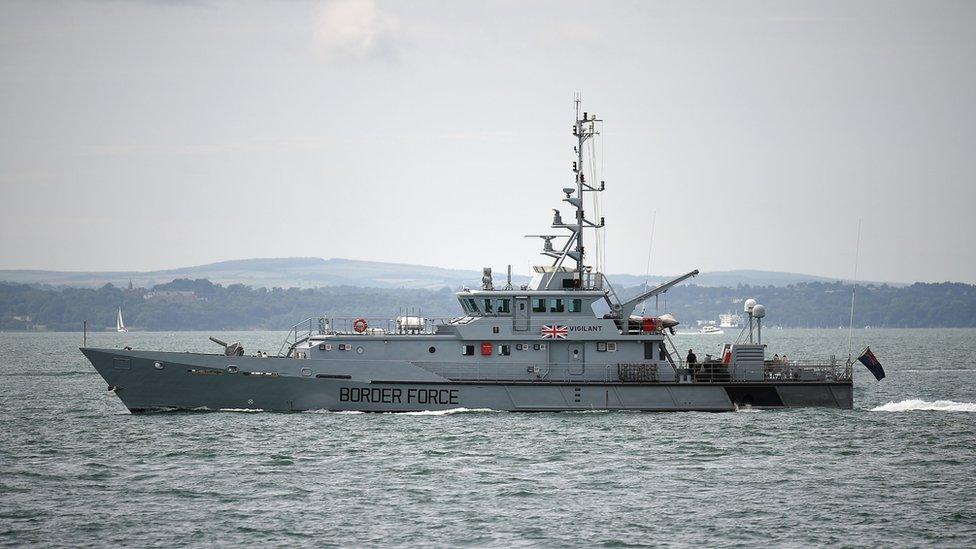
- Published26 November 2018
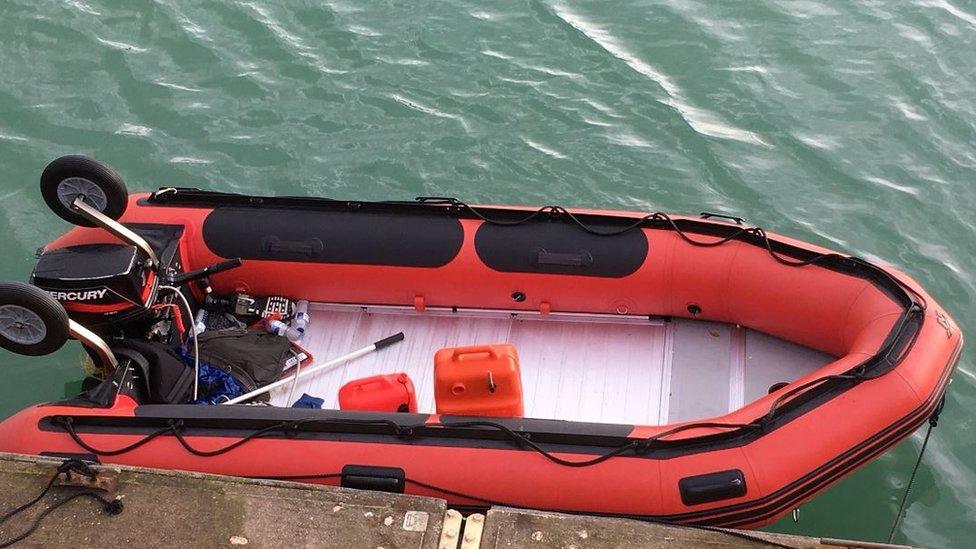
- Published26 December 2018
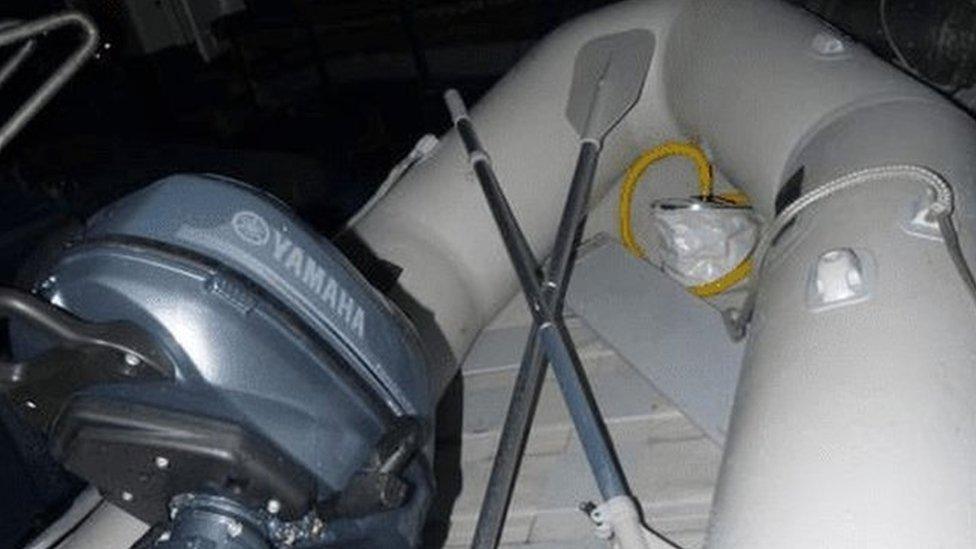
- Published6 April 2018
